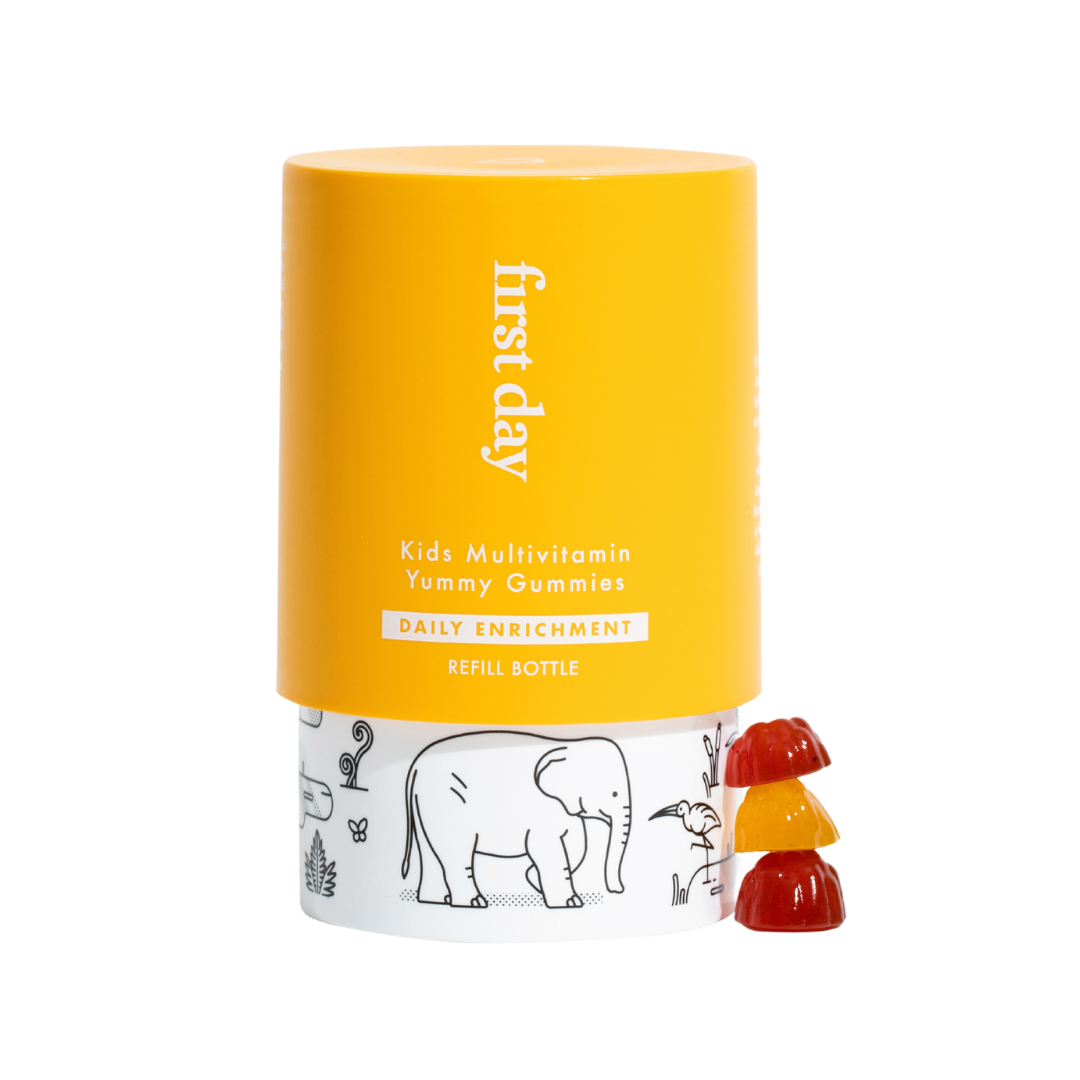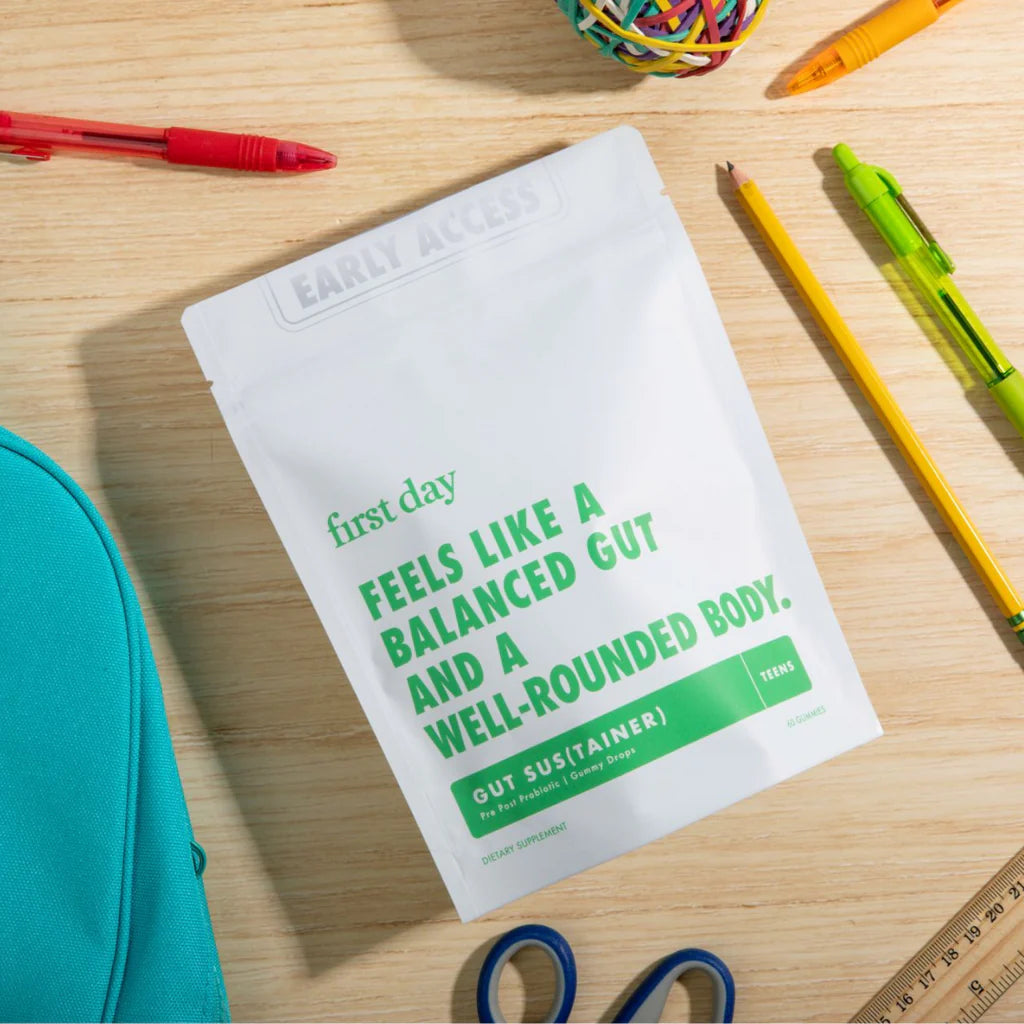Growing children require all the essential vitamins, minerals, and nutrients for optimal development. Most of the nutrients children receive come from their food. However, making sure the children eat wholesome, nutrient-dense meals is the real challenge that most parent faced.
It is well recognized that these vitamins are crucial for children's healthy development. Any vitamin deficiency will have a detrimental impact on the health of the child as a whole.
Most parents know their children need vitamins but are unaware they must be consumed in the proper dosage. They continue giving their children vitamins without realizing they are poisoning them until the child is admitted to the hospital.
It's best to comprehend the many vitamin types and how they may affect your child's interior health so, let’s begin!

Types of Vitamins
An organic substance known as a vitamin is a crucial micronutrient an organism needs in minute amounts to operate its metabolism correctly. Vitamins can be divided into two categories.
- Fat Soluble
Vitamins that are fat soluble dissolve in lipids. They are taken up by fat globules that move through the small intestines and are then transported by the bloodstream throughout the body. Since fat-soluble vitamins are not simply excreted, taking too much of them might make them poisonous.
The fatty liver and bodily tissues store the vitamins you take through diet. They are kept in the body as fat. Because of this, ingesting more fat-soluble vitamins than necessary can harm children's health and have negative impacts.
Fat-soluble vitamins include vitamins A, D, E, and K. However, vitamin A and D are the two most likely to result in toxicity symptoms if consumed in large quantities.
- Water Soluble
Contrarily, water-soluble vitamins are excreted from the body through urine rather than preserved. Vitamin C and B are water soluble, folate, thiamine, riboflavin, niacin, pantothenic acid, biotin, vitamin B6, and vitamin B12.
Why Parents Should Keep A check On Their kid's Vitamin Dosage
When consumed in excess, water-soluble and fat-soluble vitamins can have adverse side effects, with some causing more pronounced symptoms than others. As we have explained above, fat-soluble vitamins are stored in the body, so that over-consumption can increase these vitamins in the kid's body more than their required ratio.
Because fat-soluble vitamins can stay and build up in your body's tissues, they can harm your kid much more if they take them in excessive dosages or for an extended time. For instance, hyperkalemia, a buildup of calcium in your blood, is a symptom of vitamin D poisoning and can result in weakness, nausea, and frequent urination.
- Overdose of Vitamin A can cause nausea, elevated intracranial pressure, coma, and possibly death, among the symptoms.
- High vitamin E supplements have been linked to hemorrhages, blood coagulation issues, and hemorrhagic stroke.
- Despite having a low potential for harm, vitamin K can interact with some drugs, including antibiotics.
- Although vitamin C has a lot of benefits, it has adverse effects on the digestive system and can cause diarrhea, cramping, nausea, and vomiting.
- Niacin overdose can cause liver damage, eyesight loss, and stomach pain.
- B6 overdose can result in severe neurological issues, skin sores, vision problems, sickness, and gastritis.
- Too much B9 as a supplement may harm the body and cognitive function and conceal a severe vitamin B12 shortage.
How Much Vitamin Kids Should Take
Most kids get all the nutrients they need from a balanced diet, but occasionally they may also need to take vitamins or minerals as supplements.
Parents of Children aged 4 to 8 should refer to the chart below.
Micronutrients Gender
Vitamin B7 | 12 μg/day (AI) |
Vitamin B9 | 200 μg/day |
Vitamin B3 | 8 mg/day |
vitamin B5 | 3 mg/day (AI) |
Vitamin B2 | 600 μg/day |
Vitamin B1 | 600 μg/day |
Vitamin A | 400 μg/day (1,333 IU/day)c |
Vitamin B6 | 600 μg/day |
Vitamin B12 | 1.2 μg/day |
Vitamin C | 25 mg/day |
Vitamin D | 15 μg/day (600 IU/day) |
Vitamin E | 7 mg/day (10.5 IU/day)d |
Vitamin K | 55 μg/day (AI) |
It is always advisable to listen to medical advice. The doctor can determine which vitamins your child is deficient in through tests. After that, you can concentrate on giving your children the vitamins they lack.

How Lack of Vitamins Can Harm Kids
Your youngster may suffer from a vitamin shortage if their food is unvarying. Unfortunately, these deficiencies might eventually lead to catastrophic and long-lasting effects. Do you think your youngster might be vitamin-deficient? This guide assists you in deciding which foods to include in your child's diet to address any health issues.
- Vitamin A
A lack of vitamin A can make it difficult to see. Your child might complain of having poor vision. Your youngster can also complain of dry eyes, skin, and persistent illnesses.
- Vitamin B
Any vitamin B deficiency may result in sores and ulcers inside the mouth, sometimes known as canker sores. A toddler with brittle hair and nails may be deficient in vitamin B7. Muscle soreness, exhaustion, and cramps are sometimes accompanied by brittle hair.
A young child with vitamin B3 and B7 deficiency may also have hair loss. B7 deficiency can occasionally also cause a rash on the skin.
- Vitamin C
Your youngster may get bleeding gums if they don't get enough vitamin C.
Another negative vitamin C shortage result is scurvy, although this condition usually only appears in extreme situations. Your child may endure weakening muscles, frequent bruising, and a compromised immune system due to scurvy.
- Vitamin D
Your youngster may exhibit bone disease, liver illness, or inflammatory bowel diseases if they don't get enough vitamin D.
- Vitamin E
It can cause trembling, visual issues, and weak muscles. Children who experience these symptoms may find it difficult to walk.
- Vitamin K
Lack of vitamin K can cause significant bleeding, poor bone growth, osteoporosis, and an increased risk of cardiovascular disease. It's evident by now that children require all vitamins for healthy development. All of these vitamins are crucial for their growth.
Multi-Vitamins are Helpful to Overcome Vitamin Deficiencies
There are some situations where supplementation may be necessary.
For instance, there may be a need for specific Vitamin and mineral supplements for children who are at risk of deficiencies, such as those who:
- Consume just vegetarian or vegan food
- Kids who possess a condition, such as celiac disease, cancer, cystic fibrosis, or inflammatory bowel disease, that impairs nutrient absorption or increases the requirement for nutrients (IBD)
- Kids who are exceptionally selective eaters find eating a range of foods challenging.
Under these conditions, doctors may recommend multivitamins to assist make up for specific vitamin deficiencies, and one such vitamin is First Day Kids Daily Essentials.
First Day Multivitamins
Although we know that one of a parent's most significant duties is ensuring their children consume a balanced diet that includes all the necessary vitamins and nutrients, this isn't always attainable.
Giving your child a multivitamin that tastes pleasant and is packed with organic nutrients will significantly help them with their vitamin deficits because vitamin shortages can endanger your child's life. But what qualities would you look for in a multivitamin brand before choosing it?
Its track record, the substances it used to make the multivitamins—were they made from organic fruits and vegetables or synthetic vitamins—and who created these multivitamins.
- One brand is the First day, which offers 9 essential vitamins, including Vitamins A, B1, 2, 6, 9, and 12, C, D3, and Vitamin K2. Therefore, if your child is not getting these vitamins through food, ensure they are getting them from their tasty gummies from the First day.
- Since sugar may be very harmful to children's health, most parents do not want their children to take vitamin pills that are high in sugar. Additionally, children do not appreciate the sour taste of multivitamins. First-day gummies have relatively little sugar; most of their flavor is derived from the fruits and vegetables used in their production.
- Novices didn't create these gummies; instead, they were created by Yale and Harvard-trained doctors of the highest caliber. They conducted years of in-depth research and made these nutrients filled multivitamin gummies. Know that the first day multivitamins your kids pop are genuine and not synthetic.
- You want to ensure your child is only getting the good things from their multivitamin, not any bad stuff, such as GMOs, artificial colorants, preservatives, or synthetic fillers. Gluten and gelatin are not present in first-day multivitamins. Therefore, they are suitable for children allergic to wheat, milk, eggs, nuts, soy, and gluten.
- The first day is one of the best multivitamins brands you can test, and if you like them, you can return them as they have 45 days cash back warranty; The first-day multivitamins do not impose their product on you; instead, they let you choose it after testing it.
Conclusion
All vitamins are necessary for your children, but it can be confusing because excess and a shortage of these nutrients might harm your children.
You should consult a doctor because your child's health is at stake. Although it's preferable to obtain vitamins via food, first-day gummies are the most excellent option if your child isn't getting these vital elements for some reason.










